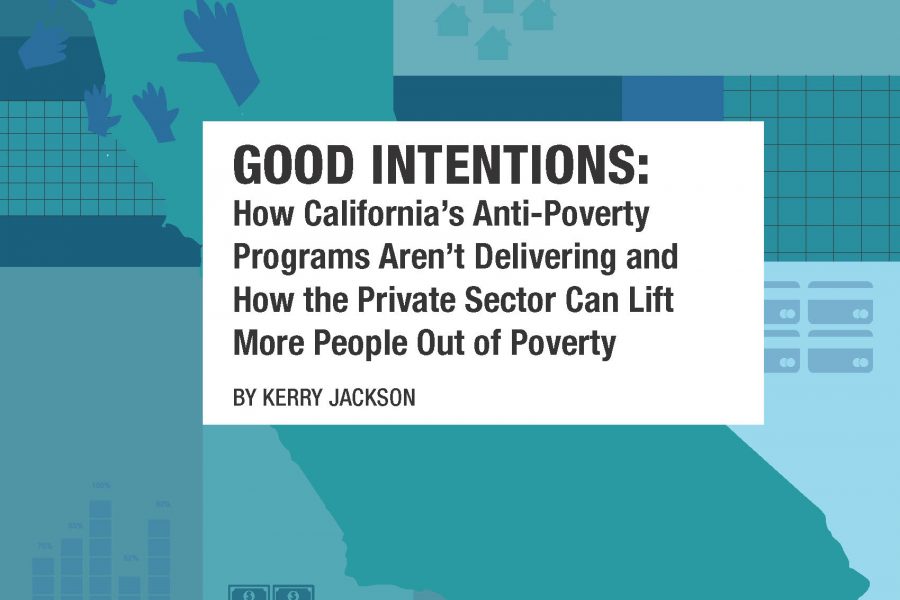On New Year’s Day, months after wildfires had started their deadly march through California, the Los Angeles Times published an article headlined “After the flames, allegations of rent-gouging fly in devastated wine country communities.” It did not include a single defense of higher prices, which indicates bias, or economic ignorance — or both — on the part of the reporter and editors who saw the copy.
This is typical, though. It’s not unique to the Los Angeles Times. The media largely believe that rising prices during times of crisis, or so-called price-gouging, is malicious, and therefore cannot be morally defended. It’s much like the press’ coverage of global warming. Because journalists are so sure that the position they’ve locked themselves into cannot be anything but the unassailable truth, many have stopped presenting arguments from researchers who dispute the man-made global warming narrative.
The story of course did note that “as the wildfires ravaged Northern California, Gov. Jerry Brown on Oct. 9 declared a state of emergency, making it a crime under the state’s anti-price gouging law to raise the prices of goods and services, including housing rentals, more than 10 percent,” then “extended the ban through April 18.” While we don’t advocate charging $100 for a bottle of water, raising prices by more than 10 percent may actually benefit more people than an anti-price gouging government order.
In all fairness, though, every governor issues the same order when catastrophes strike. It is expected of them due to widespread economic ignorance.
What is needed, then, is enlightenment. So here’s a modest attempt to clear the fog:
First, the logical act of raising prices during crises should not be tarnished with the pejorative label of “gouging.” When prices rise, it is a natural response to the market. Prices have to go up when demand increases so that the higher demand won’t outstrip the supply. Check high school economics.
Second, the victims of natural disasters — wildfires in California, hurricanes in the Southeast, tornadoes in the Midwest, earthquakes anywhere — badly need goods such as water, canned food, lumber, fuel, generators, and shelter. Imposing government caps on how much can be charged for these items ensures that there will be shortages as local supplies will be quickly exhausted in a time of extreme need. The hunger and thirst due to shortages caused by runs on available goods would be alleviated, however, if independent grocers in, say, Iowa and Ohio rushed trucks filled with canned goods and bottled water to New Orleans. But with price caps in place, doing so makes no sense. With price caps in place, they might not make a profit and could even lose money.
The best way to ensure that supply can meet the higher demand is to allow the incentives of the market to work. Rising prices motivate sellers to take their goods to market. If prices are permitted to naturally increase, those Midwest grocers — or lumber companies or hardware store owners — have a strong incentive to quickly provide what the victims in Louisiana are needing.
Rising prices also produce entrepreneurs. After Hurricane Katrina landed in 2005, Kentuckian John Shepperson bought 19 generators, took time off from his job, rented a truck and drove 600 miles to Mississippi where victims needed electricity. As American Enterprise Institute economist Mark Perry tells the story, “John offered to sell his generators at twice the price he paid, to help cover his costs and make a profit.” But he never had a chance. The government arrested Shepperson for price gouging, and held him for four days. The generators? They were confiscated, says Perry, and “never made it to consumers with urgent needs who desperately wanted to buy them.”
So who wins when merchants and entrepreneurs are able to sell their goods at market prices? The merchants and entrepreneurs, of course. But the victims in extreme need also win. Their needs are met through a voluntary, peaceful transaction.
Skeptics will say our argument is merely an academic exercise with no basis in reality. Given that governments routinely outlaw price increases when disasters occur, there might not be enough data to prove our point, so it’s possible they’re right. Yet experience shows that when the cost of labor isn’t capped by decree during a state of emergency, the supply of labor increases. This is how we know:
In the aftermath of a recent hurricane, a University of Miami professor wrote to Perry to tell him that “Florida Power and Light, our power company, is employing thousands of line workers from as far away as Illinois to fix the power lines in the wake of Irma. These line workers are being paid double or triple their normal hourly wages, which provides them with the financial incentive to drive to Florida and work 12-16 hour shifts in sweltering heat.”
A few weeks later, Reuters reported that utility crews were streaming “into Florida for hurricane payday.” Many of the linemen “savored both the financial opportunity and the adventure of racing into a historic hurricane.” One figured he’d “probably make 30 grand this month.”
So while those lineman are free to “wage-gouge” power companies and ratepayers because utility executives know economic incentives work and their customers want their power back on, those who would offer goods at prices consumers would willingly agree to pay are treated as criminals. This is both intellectually as well as morally irreconcilable.
Kerry Jackson is a fellow with the Center for California Reform at the Pacific Research Institute.


